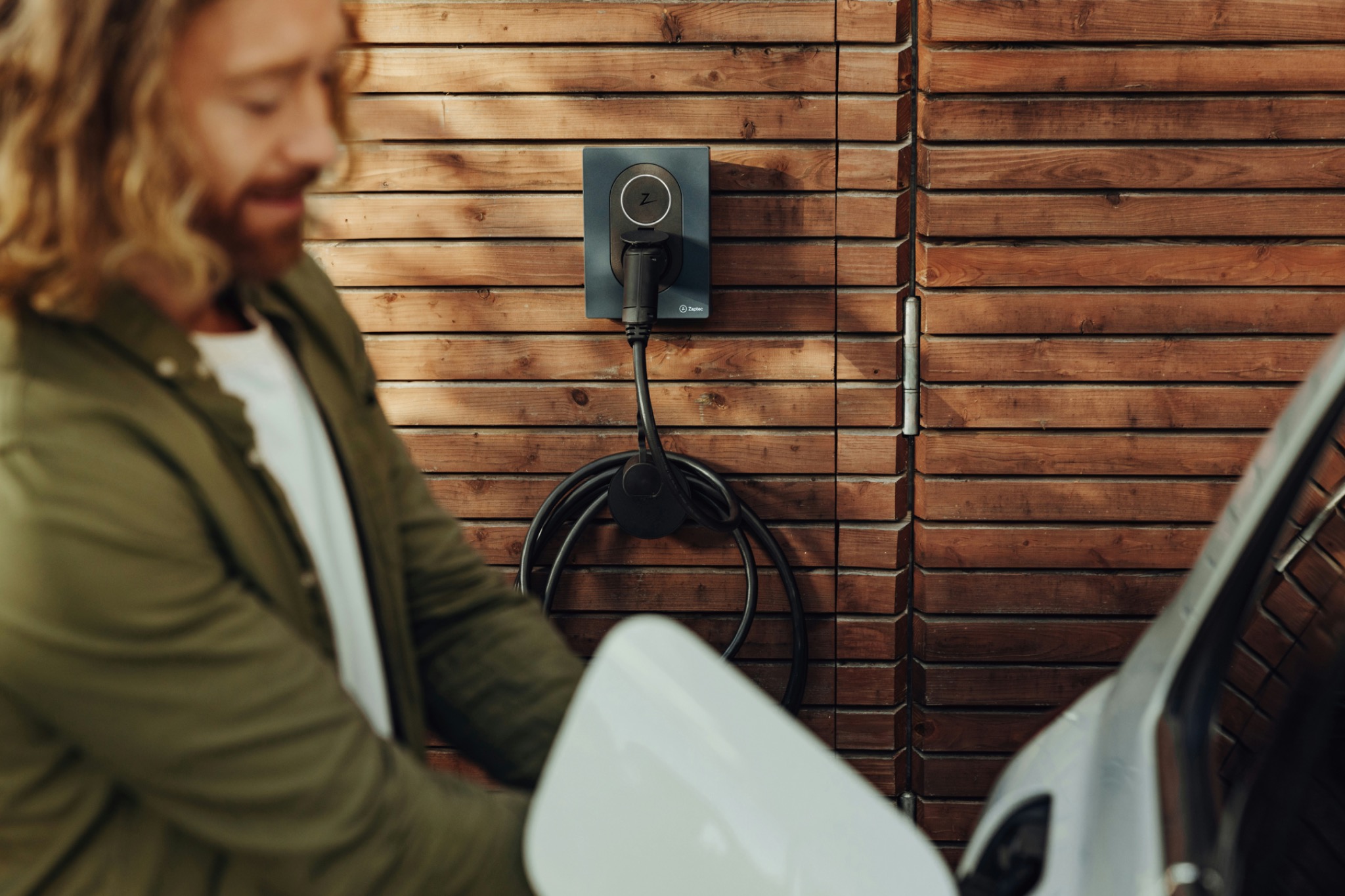Home Charging
There are a couple of ways you can charge your electric car at home and many home charger brands to choose from.

Most drivers tend to charge their cars at home, overnight whilst they sleep. This is as easy as plugging in your mobile phone – your car will charge until full, and then switch off.
The safest and easiest way to charge at home is by using a dedicated homecharge unit. These can be installed in a few hours by a number of approved providers. Most cars also come with a charging cable you can plug into a standard domestic 3-pin socket, however these are not recommended for regular use as they are not as weatherproof, and they take much longer to charge the vehicles.
The best thing about charging your electric car at home whilst you’re not using it is that it’s always ready to drive its full range when you set off.

Three-Pin Plug Charging
You can use a normal 3-pin plug socket, although we’d recommend that you use a dedicated circuit for charging your car, as some home wiring isn’t designed to cope with such heavy loads. The 3-pin EVSE cable is supplied with most new EVs, and is limited to 10 Amps current, which means that it will take 12-15 hours to fully charge from 0-100%.

Fast Chargers
Fast EV chargers, often classed as Type 2 AC chargers offer a charging rate between 7kW and 22kW allowing you to charge your car in less than 8 hours. This can be great for charging overnight.
How much does it cost?
Charging an electric car (EV) at home is not only convenient but also often more cost-effective than traditional fuel options. However, understanding the costs involved is crucial for effective budgeting.
The cost to charge your EV mostly depends on the vehicle's battery capacity. Most electric cars have a battery capacity between 30 kWh and 100 kW.
Based on the average standard electricity rate in the UK;
- Small EV (30 kWh): Charging from empty to full could cost around £7.20 (30 kWh x 24p).
- Medium EV (60 kWh): Charging from empty to full could cost about £14.40 (60 kWh x 24p).
- Large EV (100 kWh): Charging from empty to full could cost approximately £24.00 (100 kWh x 24p).
However, many energy providers offer reduced rates during off-peak hours, often around 13p to 18p per kWh.
Based on the average off-peak electricity tariff (greenmatch.co.uk);
- Small EV (30 kWh): Charging from empty to full could cost around £3.90 (30 kWh x 13p).
- Medium EV (60 kWh): Charging from empty to full could cost about £7.80 (60 kWh x 13p).
- Large EV (100 kWh): Charging from empty to full could cost approximately £13.00 (100 kWh x 13p).
By charging during off-peak times, you could save significantly, lowering your monthly charging costs if you charge your vehicle several times a week. This makes home charging an even more attractive option for EV owners looking to manage their expenses effectively.
Did you know?
Many electric vehicles can be programmed to charge during off-peak hours automatically. This means you can take advantage of lower electricity rates at night, reducing your overall charging costs. Some models even allow you to set charging schedules through a mobile app, making it super convenient to maximise savings while ensuring your car is ready when you need it!
